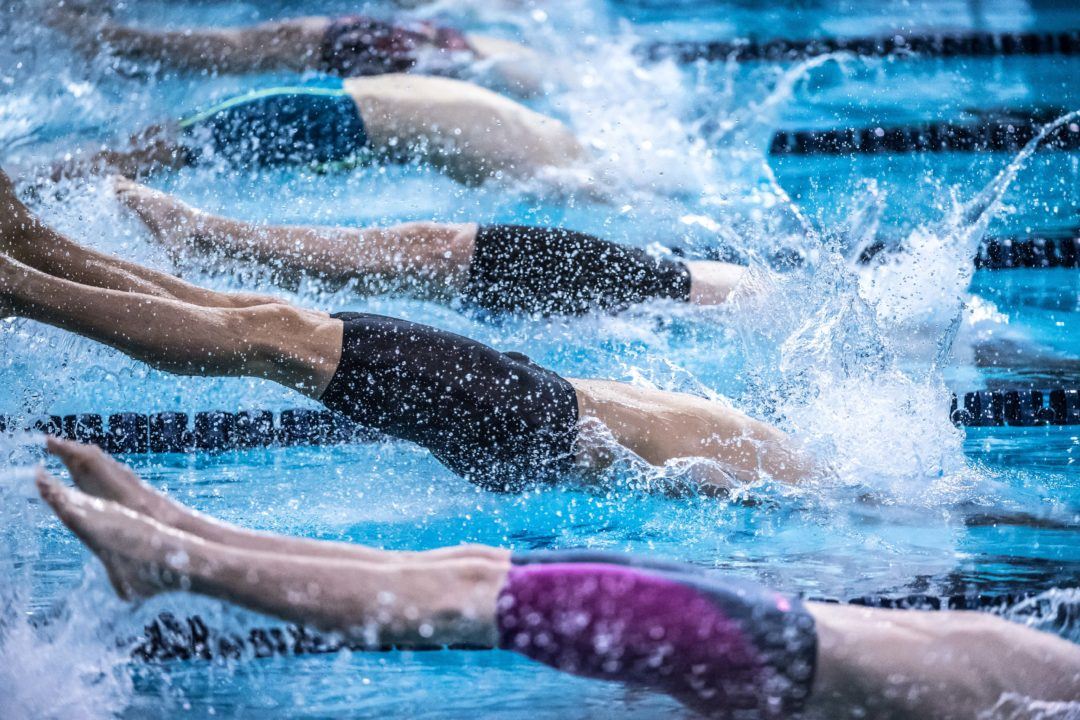Press Release courtesy of LEN
A new LEN project has been launched in Copenhagen during the European Short-Course Swimming Championships. Its name, ‘Getting Europe Swimming Safely’, reflects on the target to decrease the number of drowning in the continent and to set standards in learning to swim.
Last year at the European Aquatics Championships in London, LEN, in association with the European Life-Saving Federation and Swim England, began to work on a new project ‘Getting Europe Swimming Safely’. After busy months of research and discussions, the steering group shaped the project which were ready to be launched.
At a press conference held in the Royal Arena Copenhagen, LEN President Paolo Barelli, with Danish Swimming Federation CEO Pia Holmen and Jon Glenn from Swim England presented the details of the initiative.
“We have to understand that our sport is different from the others. If you can swim, you can save your own life and maybe others’ one too” President Barelli said. “Here we are not talking about top level athletes, in this programme we are not preparing them to swim on high level. Instead, we have to take care of the little children. This is a project we have to build together with our national federations as we have to take care of not only medals, Olympic Games, records but also the health of the people.”
The LEN President claimed that those working in the project have to discover the ways to get more inside the society, “and also have to learn how to enter into the heart of our governments. The power in our hand is very strong as we have stars who can raise awareness and we have experienced and educated people who can teach thousands of youngsters. And we have to use this type of power to open the doors of ministers of sports, education or construction. We can achieve huge results thanks to this project.”
Danish Swimming Federation CEO Pia Holmen, also member of the steering group, shared some facts on the on–going projects in Denmark where swimming is amongst the most popular sport activities. With a coastline of almost 8,500km, people considers swimming a fundamental skill – but a lot of clubs have long waiting lists for their courses, still, the statistics on the young ones’ swimming skills are worrying. “Our local project focuses on the development and implementation and evaluation of innovative models of school swimming education that promotes efficient learning of basic swimming skills and water competencies.”
Though Europe is not the worst effected continent by drowning, still, four people die in the waters in every hour as 35,000 humans lost their lives annually. Drowning is among the 10 leading causes of death in the world and in the top five among children aged under 15. “Way too many lives lost” said Detlev Mohr, ILS Europe President in his video message (this institution, the International Life-Saving Federation also plays a pivotal role in the new project).
Jon Glenn from Swim England shared a terrible statistics on the British youth: despite swimming being a compulsory subject in the schools, 45% of children under 11 cannot swim 25 metres.
“We’ve been setting these European standards to have young people and adults in safe in the water” Mr. Glenn said. “We were glad to hear some politicians saying that teaching children swimming was a human right. We have to keep on lobbying governments to make swimming compulsory, part of the curriculum.”
Kelvin Juba, member of the steering group explained that they made a wide research across the continent as they wished to establish standards for teaching and learning swimming and also to introduce the LEN Blue Card, a certificate on swimming skills. “We hope to do something good for not only saving lives but to get people swimming properly.”
As for the standards, LEN recommends that all children will have tried to enrol in a learn-to-swim programme at least by the age of 8 years and after completing a course they should be able to swim at least 200 metres in warm water. Standards are also set for facilities, teachers and lifeguards.
The LEN Blue Card is designed for both pool users and those operating swimming pools, as managers will be enabled to determine which areas a ‘bather’ should be using, thereby helping with health and safety.
World and European champion Danish swimmer Lotte Friis recalled a memory from her childhood when her sister almost drowned in the pool in her family’s backyard. “After that my parents were determined that we should master the water and have safe and great experiences in it.” As the former athlete explained, “water can be a fierce element, that’s why it’s important for me that children learn to respect water and learn the skill of swimming. I love to see children feeling safe while being in the water, playing and splashing.”
In the coming month, LEN will organise a meeting involving the presidents of all National Federations to consult on the details on the programme and to discuss the future steps with the responsible officials of the European Union.
